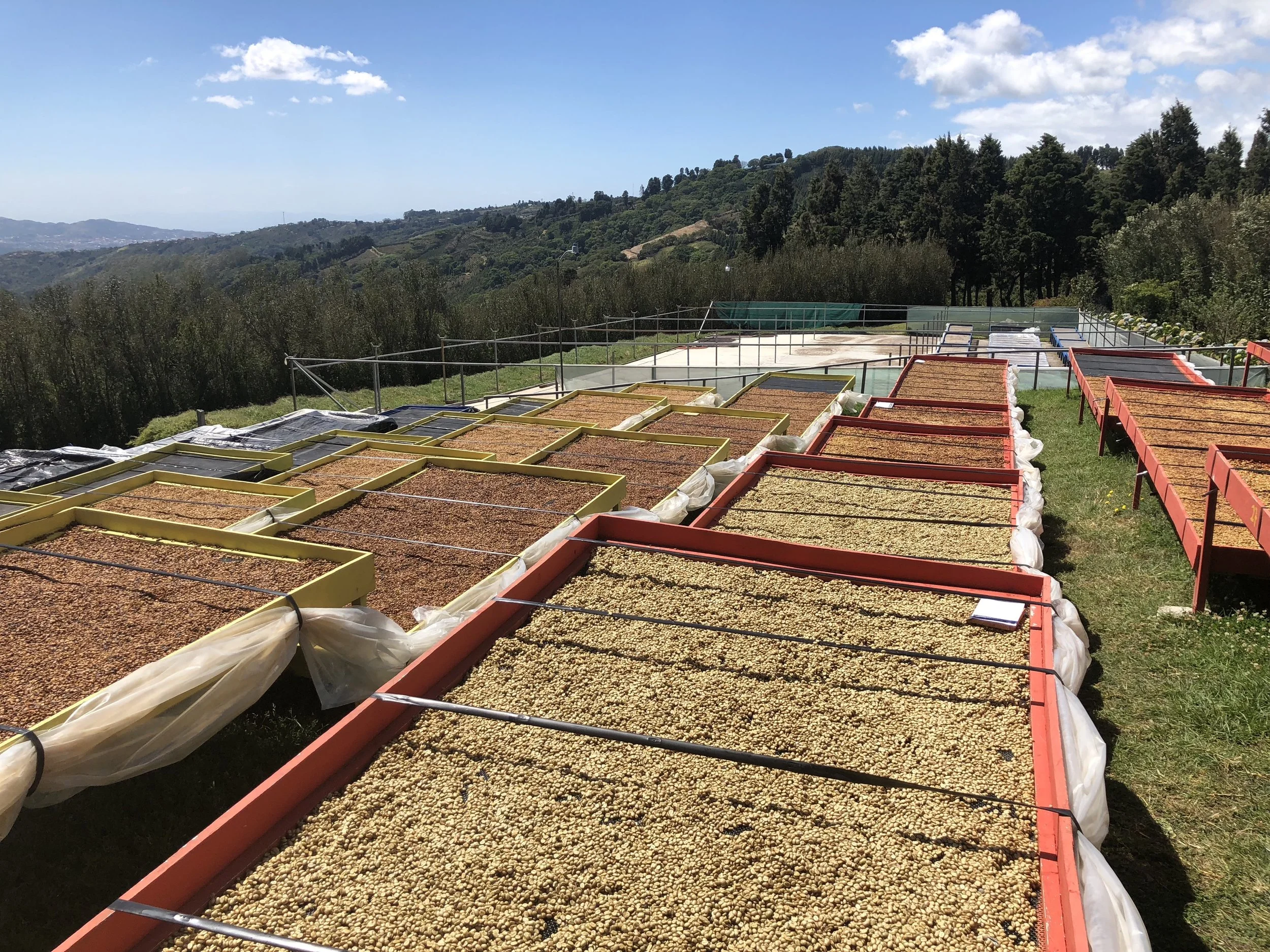Coffee Processing: Honey Process
Introduction
All coffees must undergo some sort of processing to make the beans available for roasting. tailing right behind washed or natural process, the honey process is the third most popular method used by coffee producers worldwide.
Central America popularized this style of processing and it’s where innovation continues to grow. Honey processing has some elements in common with the pulp natural process common in Brazil and the giling basah, or wet hulling, process common in Indonesia.
What is honey-process coffee?
Honey process coffees are somewhere between washed and natural coffees. Harvested coffee cherries are de-pulped (fruit skin is removed), and the coffee beans, with some fruit and pulp, still attached are laid out on raised beds to slowly dry. The remaining golden, sticky mucilage is reminiscent of honey, which is where the process gets its name. In some countries, there are various classifications of honey process based on the amount of pulp (mucilage) left on the coffee during the drying process - Yellow, Red, Black, or White.
During the drying phase, the sticky coating on the outside of the beans oxidizes and darkens in color. Beginning a golden yellow color, coffee that is stopped at this point is referred to as yellow honey process coffee. Allowing the coffee to continue fermenting, the mucilage further oxidizes to a red and finally a black color. The more fruit is left on the bean the darker the color as well.
These differing amounts of remaining pulp and drying times will affect the fruit-forward notes, but not nearly as exaggerated as natural processed coffees. Honey process coffees also tend to have a bit more sweetness, acidity, and complexity to the mouthfeel when compared to washed coffees. There has been a lot of recent experimenting with this process as farmers play with the amount of mucilage they leave on the beans and subsequent flavor. Besides attenuating levels of flavor and acidity, honey processing uses less water than a fully washed coffee, and can be less finicky in terms of fermentation (and coffees growing moldy) than a natural process.
In Central America, honey process coffees are typically produced at higher altitudes (upwards of 1,600 meters above sea level) where they're exposed to cool night air temperatures but hot daytime sun during ripening periods. This allows enzymes to convert complex carbohydrates into simple sugars—which creates an especially sweet flavor profile without sacrificing acidity levels found in other processes.
What does Honey Process Coffee Taste like?
As mentioned, honey-processed coffees tend to be sweet, acidic, and complex at the same. More so than a washed coffee. As you taste different levels of honey processing, you will notice the coffees get fruitier and sweeter until you reach natural processing, which produces the most fruit-forward-tasting coffee.
What does Honey Process Coffee Taste like?
Honey process coffee is known for its sweetness and fruitiness. The beans have a low acidity, which makes them versatile enough to use in anything from traditional drip coffee to cold-brewed iced coffee. The beans can be typically more complex than washed coffees. The thing to really understand here is that no honey is actually used to impact the flavor.
Conclusion
The honey process is another process that allows the coffee producer to process coffee and thus offer variety to customers. This flavor variation essentially adds additional coffees the producer can offer and in turn, makes the producer more attractive to exporters. Not to mention, honey-processed coffees typically garner a higher price. Understanding that coffee processing is a large part of the production line and how it has a large effect on how coffee tastes is massive! If you never knew how coffee is processed, hopefully, this commentary gave you some insight to explore with your tastebuds. Knowing what processing style you like best can help you choose coffees in the future.





